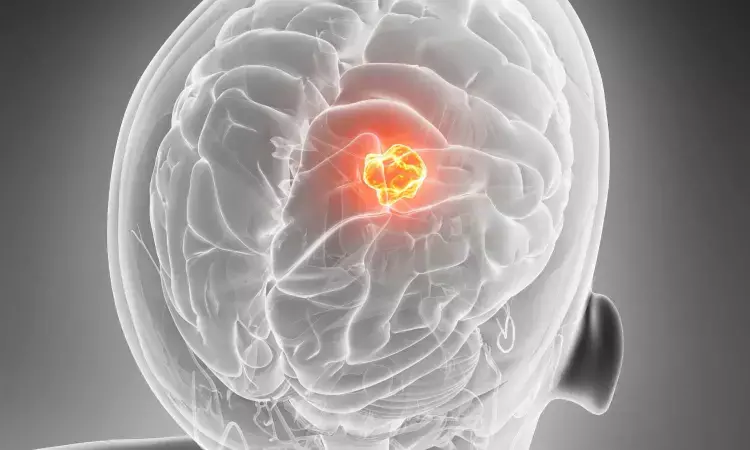- Home
- Medical news & Guidelines
- Anesthesiology
- Cardiology and CTVS
- Critical Care
- Dentistry
- Dermatology
- Diabetes and Endocrinology
- ENT
- Gastroenterology
- Medicine
- Nephrology
- Neurology
- Obstretics-Gynaecology
- Oncology
- Ophthalmology
- Orthopaedics
- Pediatrics-Neonatology
- Psychiatry
- Pulmonology
- Radiology
- Surgery
- Urology
- Laboratory Medicine
- Diet
- Nursing
- Paramedical
- Physiotherapy
- Health news
- Fact Check
- Bone Health Fact Check
- Brain Health Fact Check
- Cancer Related Fact Check
- Child Care Fact Check
- Dental and oral health fact check
- Diabetes and metabolic health fact check
- Diet and Nutrition Fact Check
- Eye and ENT Care Fact Check
- Fitness fact check
- Gut health fact check
- Heart health fact check
- Kidney health fact check
- Medical education fact check
- Men's health fact check
- Respiratory fact check
- Skin and hair care fact check
- Vaccine and Immunization fact check
- Women's health fact check
- AYUSH
- State News
- Andaman and Nicobar Islands
- Andhra Pradesh
- Arunachal Pradesh
- Assam
- Bihar
- Chandigarh
- Chattisgarh
- Dadra and Nagar Haveli
- Daman and Diu
- Delhi
- Goa
- Gujarat
- Haryana
- Himachal Pradesh
- Jammu & Kashmir
- Jharkhand
- Karnataka
- Kerala
- Ladakh
- Lakshadweep
- Madhya Pradesh
- Maharashtra
- Manipur
- Meghalaya
- Mizoram
- Nagaland
- Odisha
- Puducherry
- Punjab
- Rajasthan
- Sikkim
- Tamil Nadu
- Telangana
- Tripura
- Uttar Pradesh
- Uttrakhand
- West Bengal
- Medical Education
- Industry
What is role of gamma knife radiosurgery in management of grade 2 meningioma?

The role of radiosurgery in the treatment of grade 2 meningioma remains unclear. This study aimed to evaluate the long-term outcomes of gamma knife radiosurgery (GKRS) in patients with grade 2 meningiomas and to identify factors influencing tumor control and survival.
In this retrospective study, seventy patients underwent GKRS for grade 2 meningioma between 2007 and 2016. Tumor recurrence was categorized as local, marginal, or distant. Survival curves were estimated using the Kaplan-Meier method, while the log-rank test and Cox proportional hazards model were employed to analyze potential risk factors.
The median follow-up period was 48 months (range: 8 to 132 months). The one-year, three-year, and five-year local control rates were 92%, 73%, and 65%, respectively. The one-, three-, and three-year progression-free survival rates were 87%, 51%, and 44%, respectively. Multiple lesions and multiple prior recurrences were identified as negative predictors of marginal control and progression-free survival. Similarly, multiple lesions and marginal doses ≤13 Gy were associated with poor local control. Serious complications related to gamma knife use occurred in 4% of patients.
Our results support the use of GKRS as a reasonable treatment option in the management of grade 2 meningiomas. A higher margin dose should be considered to achieve better local control. Outfield progression (marginal and/or distant recurrence) was common, particularly in patients with multiple prior recurrences and/or multiple lesions. More aggressive treatment strategies should be explored for patients with these risk factors.
Reference:
Bao E, Wang K, Gao D, Luo B, Liu A, Sun S. The Role of Gamma Knife Radiosurgery in the Management of Grade 2 Meningioma. Neurosurgical Subspecialties. 2025;1(1):11-19. doi: 10.14218/NSSS.2024.00002.
Dr Kamal Kant Kohli-MBBS, DTCD- a chest specialist with more than 30 years of practice and a flair for writing clinical articles, Dr Kamal Kant Kohli joined Medical Dialogues as a Chief Editor of Medical News. Besides writing articles, as an editor, he proofreads and verifies all the medical content published on Medical Dialogues including those coming from journals, studies,medical conferences,guidelines etc. Email: drkohli@medicaldialogues.in. Contact no. 011-43720751


